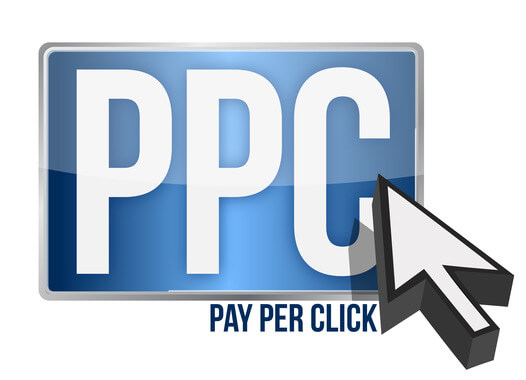Pay-Per-Click Advertising: What It Is and How It Works

There are many ways to “game” search engines and get your business or website at the top of the search results heap – key words and phrases, headings, and tags are all good ways to enhance search engine relevance. Sometimes, though, the most effective way to get people to your website is to choose a campaign where you’re guaranteed a spot at the top.
If you need those web page visits, and need them fast, pay-per-click advertising could be your best bet.
What is Pay-Per-Click Advertising?
Pay-per-click (PPC) advertising allows business owners and advertisers to display ads in sponsored sections of search engine results, usually at the very top of the page. If someone punches into Google certain keywords, an automated process determines which company is relevant and how relevant they are to those keywords. If a person clicks on these sponsored posts, the businesses are charged.
A process commonly known as an ad auction determines whether or not your PPC ad will show, and how high it will appear in the results if it wins a spot.
Advertising Auctions
Search engines determine who gets what keywords using an auction system (see: Google AdWords Auction). Advertisers bid on certain terms they want their ad to come up in search results. If a business’ ad is eligible to appear after a keyword search, it goes through a process that determines whether or not it gets shown. Some things will cause the system to filter it out, like geographic region and approval. The rank of the ad determines if it shows, and where exactly in the results it’ll appear.
So it may sound like a rather simple process: bid the right amount, a search engine says you’re in, and you pay when the searcher clicks. Right? Well, yes and no. What sounds simple in principle can actually be a time-consuming task. If done right and often, though, PPC ads can be an incredible way to get people to your website.
The Complexities of Pay-Per-Click
It’s not as easy as submitting your website or an ad to Google and letting the keyword searches do the work for you. Businesses running their own PPC can get caught up with certain keywords, letting the bidding part of the ad auction take over their time and money. Quality-based returns mean if a business uses PPC, they have to make sure their ads stay relevant, and can increase the costs despite the clicks on return. Relevant keywords can also change, meaning a business can continue bidding on keywords that are no longer important. All of these mean it can be a lot more costly than regular ol’ SEO.

Don’t let the complexities get you down, though. PPC advertising is one of the most beneficial types of campaigning, and can be just the strategy for your next campaign. Like everything else, it just needs to be done right.
Where Does Pay-Per-Click fit in?
What makes PPC advertising great is the guaranteed results a business can get. Results at the very top of the page can translate into higher traffic and more customers and exposure. It’s great for online stores, as their goods can come up as the link for keyword searchers, and this direct link can turn clicks into sales. Even if your business doesn’t sell goods or services directly from the website, a well-written ad can become the first thing Internet users see, leaving great first impressions and enticing them to click for more information. If you’re in a niche area, too, PPC ads can be well worth the money – less competition for keywords means fewer bidders and cheaper keywords.
It’s all a matter of knowing which keywords will be relevant, which ones are worth bidding on, and how to work with the constantly changing landscape. Go with a company that specializes in keyword speak and can set up PPC advertising for you. It might make your next campaign your best one.